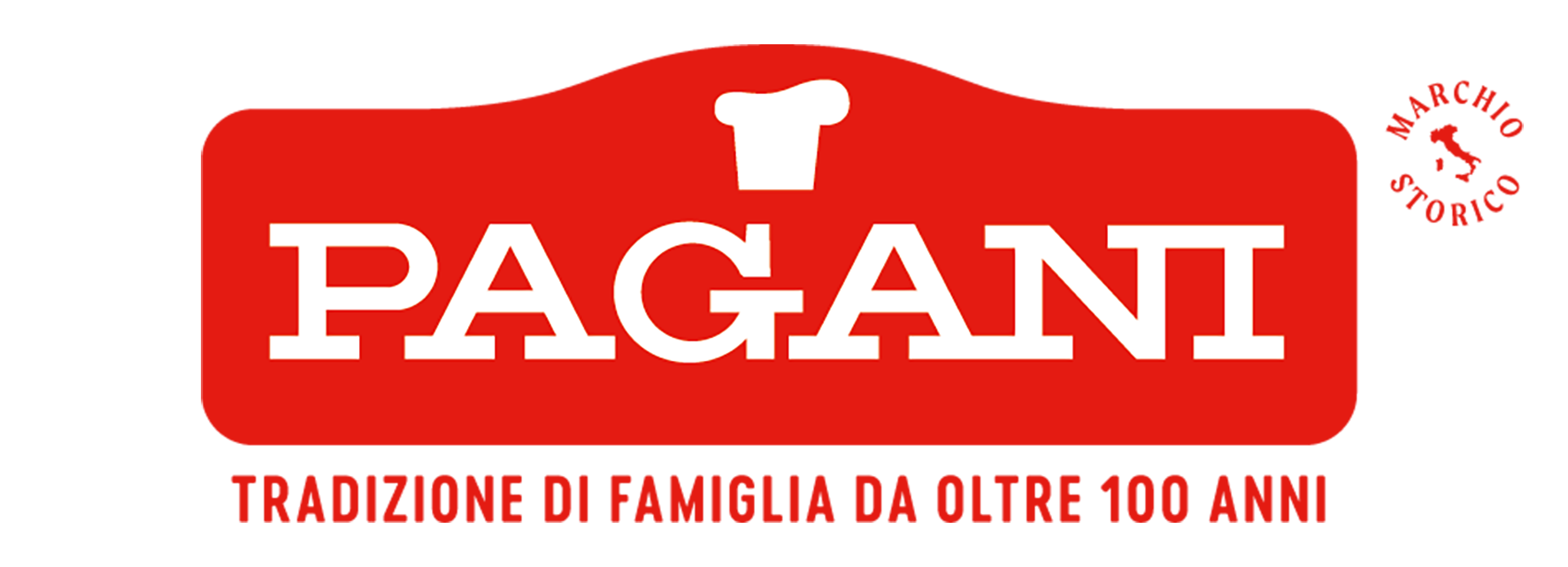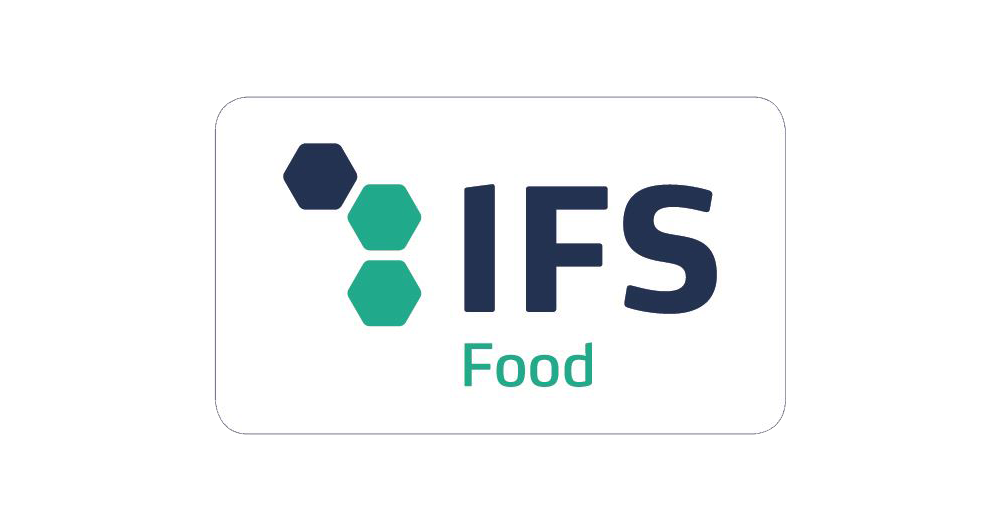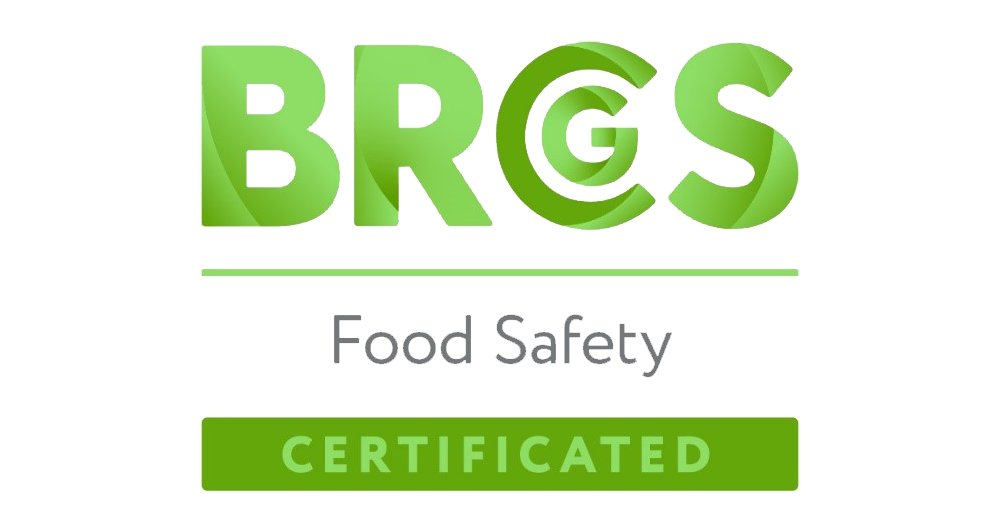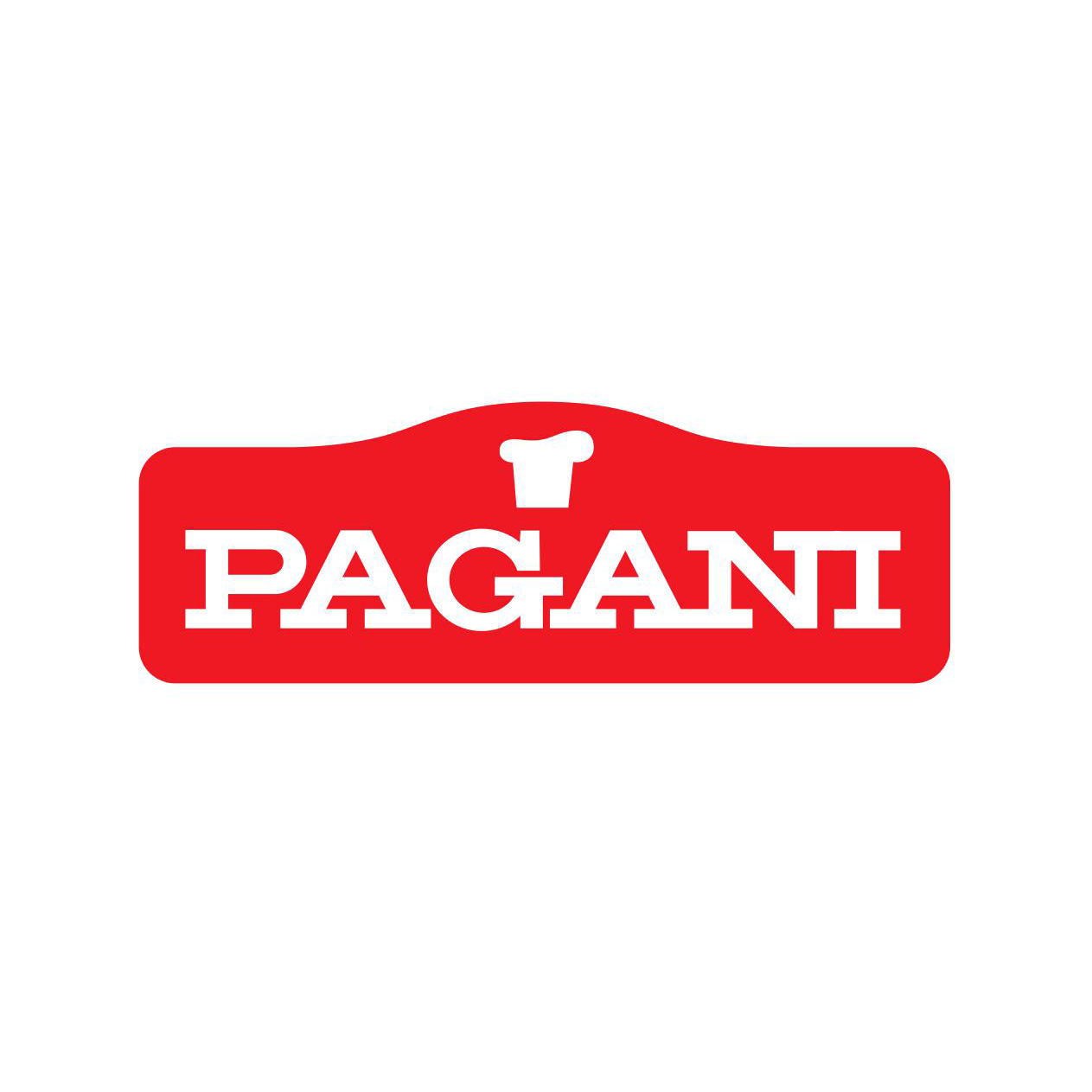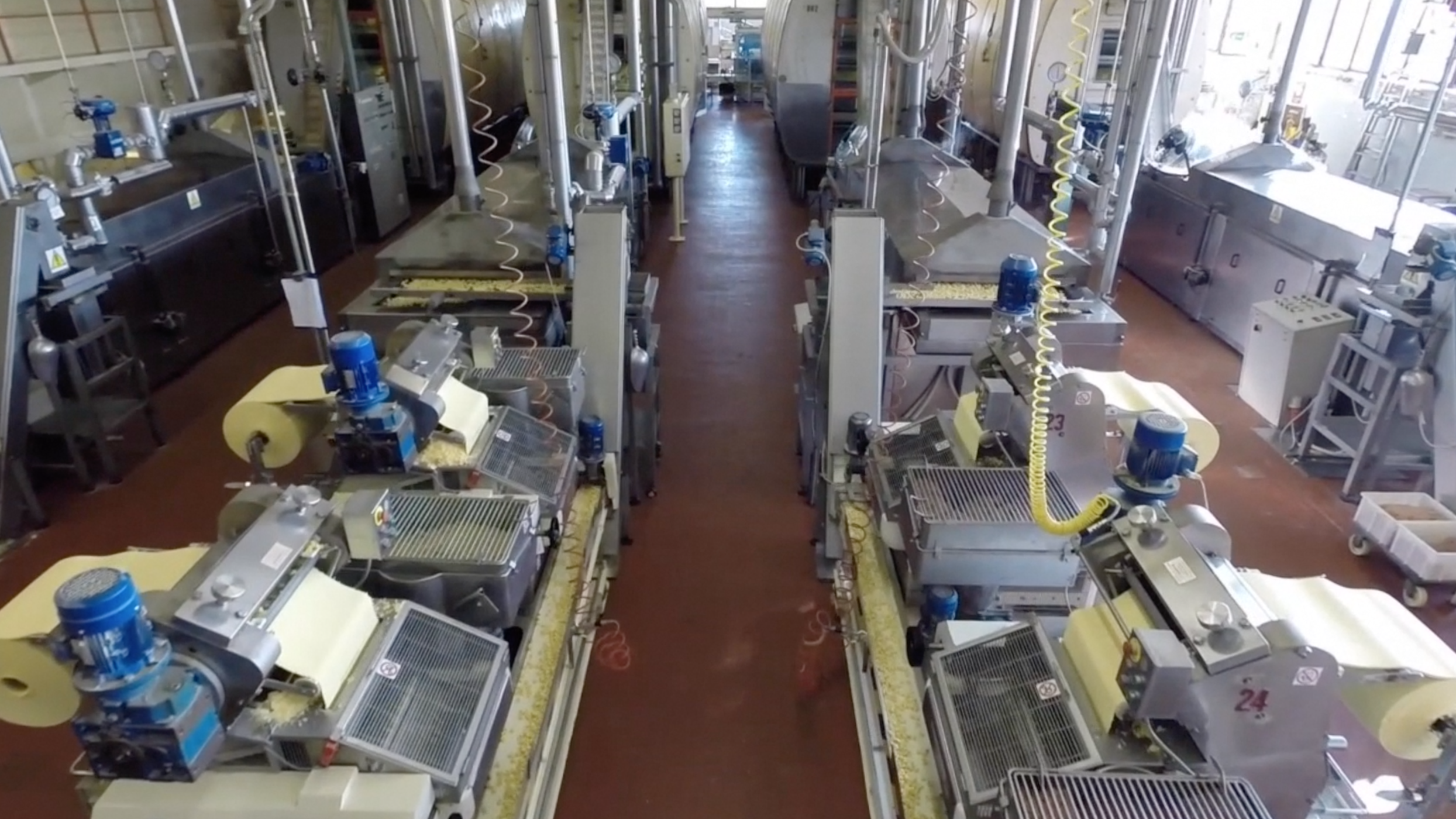

Production
Production process
PHASE 1 Preparation of the filling
The raw materials are prepared inside a large container and are turned inside a mincer to undergo a first kneading. The dough is then tipped into a mixer where water and breadcrumbs are added to give the filling the right consistency. After mixing, the filling is placed in an extruder. With the filling thus obtained, special basins are filled and stored in a dedicated refrigerating room.
PHASE 2 Product forming and drying
Durum wheat semolina, eggs and water are kneaded, and pasta rolls are prepared. Afterwards, the tortellini and ravioli machines of our 4 production lines (independent and configurable to produce stuffed pasta of different shapes and with different types of filling) form the product by “coupling” pasta and filling. Tortellini and ravioli are then pasteurized to reduce the bacterial load and undergo pre-drying (or wrapping) in a warm and windy environment, thanks to which the surface of the product is made more tenacious and rigid. The products therefore face the traditional drying phase, i.e. an exclusively physical process in a controlled environment which guarantees the pasta to be stored at room temperature for 12 months.
PHASE 3 Cooling, ensiling and packaging
Once the drying process is complete, tortellini and ravioli are cooled with the aim of optimizing the surface rigidity of the product and minimizing breakages during the packaging phase. They are then stored in special silos. The product is finally packaged in one of our 5 packaging lines, each being specialized for particular types of primary and secondary packaging.
Some numbers…
Total surface of our factory
of which indoor
Tons/year of finished product
Tons/day of finished product
Production lines operability
%
Export share
Quality
Long before current regulations established the obligation to implement HACCP procedures, our company adopted an effective and efficient quality control policy, which guarantees the compliance of raw materials with rigid specifications through scrupulous analysis carried out both by internal and external laboratories. Every day our Quality Control staff carries out over 25 inspections on our production process and on our finished product. Pagani is certificated IFS, BRC and Smeta-4 Pillars.
